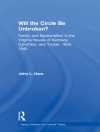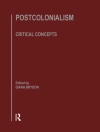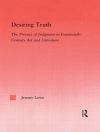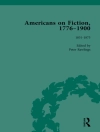Argues for a postrationalist conception of translation based not on the translator’s rational control of words and meanings but on a flowing through the translator of voices and textualities.
2001 CHOICE Outstanding Academic Title
Translators have long claimed that their job is to ‘step aside and let the source author speak through them.’ In Who Translates? Douglas Robinson uses this adage to set up a series of ‘postrationalist’ perspectives on translation, all based on the recognition that translation has always been thought of in terms of the translator’s surrender to forces beyond his or her rational control. Exploring this theme, Robinson examines Plato’s Ion, Philo Judaeus and Augustine on the Septuagint, Paul on inspired interpreters, Joseph Smith on the Book of Mormon, and Schleiermacher, Marx, and Heidegger on translation. He traces the imaginative and historical linkages between twentieth-century conceptions of ideology and ancient conceptions of spirit-channeling, and the performative inversion of power relations by which the ‘channel’ (or translator) comes to wield the source author as his or her tool. And he argues throughout for a postrationalist conception of translation based not on the translator’s rational control of words and meanings but rather on a flowing through the translator of voices and textualities.
Jadual kandungan
Acknowledgments
Introduction: Who Translates?
Preliminary Questions Channeling Rationalism, Pre- and Post- Part One: The Spirit-channeling Model Part Two: Ideology Part Three: Transient Assemblies
PART ONE: THE SPIRIT-CHANNELING MODEL
1. Reason and Spirit
The Translator as Spirit-channel ‘Reason’? ‘Spirit’? Logologies of Reason and Spirit
2. The Divine Inspiration of Translation
A Short History of Spirit-channeling Socrates and the Art of the Rhapsode Philo and Augustine on the Legend of the Septuagint Joseph Smith and The Book of Mormon Paul on Glossolalia and Interpreting
PART TWO: IDEOLOGY
3. Ideology and Cryptonymy
Logology of Ideology Heidegger on Spirit Cryptonymy: Abraham/Torok and Freud Heidegger’s Crypt First Translation Second Translation Third Translation
4. The (Ideo)logic of Spectrality
Shakespeare’s Permission (In)visibilizing Lear Marx and Schleiermacher on Spirits and Ghosts
PART THREE: TRANSIENT ASSEMBLIES
5. The Pandemonium Self
Rationalist and Postrationalist Theories of the Self Lacan’s Schema L Pandemonium The Invisible Subject The Translator’s Objects Fidus interpres and the Double Bind
6. The Invisible Hand
Invisible and Hidden Hands Translation Agencies
Conclusion: Beyond Reason
Works Cited
Index
Mengenai Pengarang
Douglas Robinson is Dean of Arts and Chair Professor of English at Hong Kong Baptist University. He is the author of many books, including Who Translates? Translator Subjectivities Beyond Reason, also published by SUNY Press.












